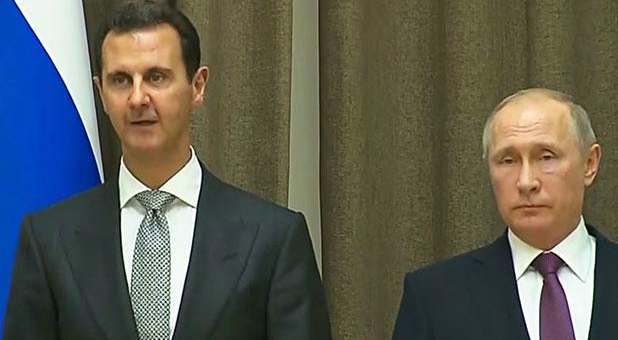Hamas Says Hezbollah Not a ‘Terror Group’
Hamas, the Palestinian faction ruling the Gaza Strip, rebuffed an Arab League resolution labeling Hezbollah, Iran’s Lebanese-based proxy, a terror group. Hamas itself has been designated a terror group by the U.S. State Department for decades.
Arab League member nations met at Saudi Arabia’s request, according to media reports, ahead of next week’s resumption of U.N.-sponsored peace talks in Geneva.
The resolution called for Hezbollah to be held accountable “for supporting terrorism and terrorist organizations in Arab countries with modern weapons and ballistic missiles.”
In response to the resolution, Hezbollah chief Sheikh Hassan Nasrallah said his group had never shipped long-range missiles to any Arab state outside of Syria and to Hamas to support the “resistance.”
Hamas, for its part, called Hezbollah a “resistance movement,” much like itself (and the Palestinian Authority’s Ramallah-based Fatah faction), and called on Arab states to work together to support “the legitimate struggle of the Palestinian people,” Israel’s Arutz Sheva reported.
Hamas is the “Palestinian” offshoot of Egypt’s Muslim Brotherhood.
Meanwhile, Syria’s SANA news agency reported that Syrian President Bashar Assad met with Russian President Vladimir Putin in Sochi Monday ahead of Wednesday’s meeting in Russia with Turkish President Recep Tayyip Erdogan and Iranian President Hassan Rouhani.
Following the meeting, Putin and Assad released a joint statement in which the Russian president praised Assad for his victory over terrorism, and Assad thanked Putin for his military and political support. SANA quoted Putin as saying it’s time to “move into the political process in Syria,” adding that Russia is “working with all sides in this regard.”
Assad told reporters Syria counts on Russian support to prevent outside players from interfering in the political process, saying “We are interested in dialogue with anyone interested in a political solution.”
Assad last visited Putin a little over two years ago following Russia’s decision to shore up Assad’s regime with troops and aircraft, which it did.
Some analysts said Putin took advantage of the Obama administration’s distancing the U.S. from the Syrian war, while ignoring Hezbollah’s growing threat. Preventing Iranian weapons convoys from reaching Hezbollah via Syria fell to Israel, though it never openly admitted responsibility for airstrikes and other “preventive” measures. {eoa}
Copyright The Christian Broadcasting Network, Inc., All rights reserved.















































